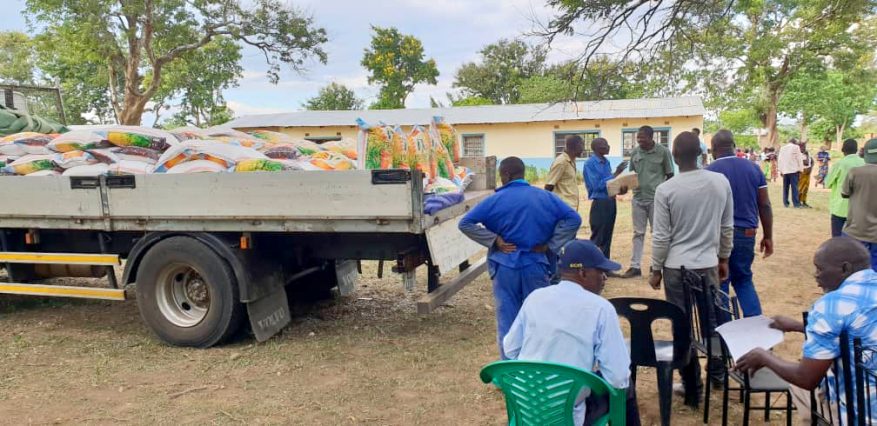Drought in Zambia has plunged parts of the southern African country into crisis. Winter food production has collapsed, leaving tens of thousands of families hungry, forced to ration their households to just a single meal a day.
It is the first time since 2004 that the UN World Food Programme has had to mobilise in Zambia. According to experts, the devastating drought has been caused by a dramatic shift in weather patterns, a result of climate change.
Self Help Africa is working in Zambia’s Southern Province, which is one the areas worst hit by this crisis. In response, we have begun distributing basic staple foods and providing emergency cash transfers to 3,000 households, to allow families to buy the food they need to survive.
Self Help Africa’s local project, ‘Protecting and Restoring the Environment and Supporting the Emergence of a Resilient and Vibrant Economy’ (PRESERVE) has been working with these households, supporting families to produce more on the local wetlands, and encouraging them to protect this vital resource for the future.
It’s a region where 90% of the population rely on these wetlands for their food. Right now, irrigated horticulture and winter farming isn’t working, or producing for them as it usually does however.
Self Help Africa’s supporters have stepped up, and are allowing us to respond to the immediate needs of families affected.
Self Help Africa Humanitarian Director Steve Langdon said that our emergency intervention would help close to 18,000 people in total. The first distribution took place in late December, with further food aid intervention to take place in January and February 2020, when field crops including green maize, pumpkins and beans will start maturing.

